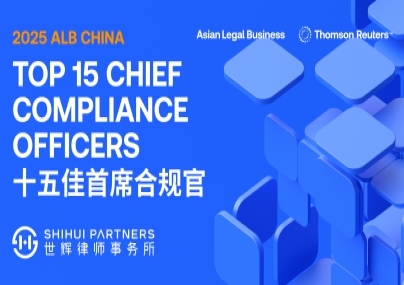
伴随疫情期间的宽松货币政策,全球市场几乎都经历了流动性增强的趋势,中国也不例外。疫情期间不能出门,在家“买基”成为新的全民运动,更有大量90后加入“基民”群体。中国基金经理们正在成为新一代爆款网红,引得一波波基民疯狂追随。
明星基金经理自然依靠高于市场的回报率获得追捧,然而,除了依靠“人脑”配置,飞速发展的新技术也开始受到越来越多传统金融机构关注。据MarketWatch报道,理论研究表明,人工智能投资策略在年化水平上可以高出市场平均收益40%。
汉坤律师事务所合伙人宛俊律师是银行金融业和金融科技领域专家,曾参与过众多金融产品的设计与合规审查以及智能投顾项目的投资。他也观察到,以AI技术选股为代表的基金智能投顾的确是近期基金市场的一大热点。人工智能与金融业务跨界联合,推动着商业化浪潮翻涌不停,而如何量化投资,如何做好智能投顾,则被视为其中最核心的问题。

汉坤律师事务所合伙人 partner at Han Kun Law Offices
宛律师告诉ALB: “很多综合理财平台及基金销售平台都推出了基于智能投顾技术的基金组合产品,也有不少专注于提供基金智能投研系统服务的公司正在快速发展。”
其实,人工智能驱动的基金在华尔街早已不是新鲜事。韩国金融科技公司Qraft旗下产品AMOM基金的成就可谓不凡,它曾因准确预测了特斯拉股票的价格走势而获得投资者的青睐。
基金智能投顾在中国的发展虽才崭露头角,但走势却如火如荼。据路透社报道,华夏基金管理公司(ChinaAMC)已宣布与加拿大人工智能公司Boosted.ai合作;浙商基金管理有限公司也推出了一项基金,利用机器人来预测市场前景和选择股票。
监管挑战
使用人工智能来挑选股票或许有更大的机率获得更好的回报,然而宛俊律师却对此表示了一些担忧,因为“在这一领域,目前中国的监管还处在较为初步的阶段”。
根据路透社报道,有些提前布局AI技术的基金公司目前已经尝到甜头,例如浙商基金一支名为“浙商智能行业优选混合”的基金自2019年9月发售以来,已经取得了68.34%的收益率——而行业基准收益率仅为21.64%。
不过这是赚钱的情况,一旦赔钱怎么办呢?路透指出,有些行业监管者已经对以AI选股、寻求更高收益率的行为表达了担忧。“从监管的角度,你得走许多合规手续,得汇报做出投资决策的过程。但有些AI模型类似黑箱,无从解释,监管者很难接受。”一位金融科技公司从业者说。
此外,在宛俊律师看来,一些机构已经从单纯的“AI选股”走向更全面的“智能投顾”,其中的合规风险更值的关注。
宛律师介绍道,早期中国在监管层面上仅有“证券投顾业务资质”,而并无关于“基金投顾业务资质”的明确规定。直至2019年10月,证监会才发文正式开启独立的公募基金投顾业务试点。随着近期试点机构的连续扩容,两年来已有超过50家机构取得相关资质。在此基础上,去年4月,证监会发布《证券基金投资咨询业务管理办法(征求意见稿)》(管理办法(征)),从主体资质、业务监管、公司治理、信息报送、处罚措施等方面,对证券投顾及基金投顾业务分别进行了全面的重新规范。
更加清晰的角色划分和近年来国家对于金融领域“持牌经营”的强调,都意味着机构在进行金融产品创新——尤其是基金智能投顾业务相关创新时,首先要关心自己是否有资质。
根据宛律师的观察:“目前市场上非持牌机构打基金投顾 ‘擦边球’的情况仍屡见不鲜。监管机构并不会完全拘泥于表现形式,只要穿透实质,符合为用户提供投顾服务的特征,即可能被认定为违规。”
此外,对于包括基金公司在内、有基金销售业务资质的持牌主体而言,也应注意“基金管理型投顾由于涉及代客决策及代客操作,与单纯的基金销售差别较大……未取得基金投顾业务资质的基金销售主体需特别注意不应当为客户提供管理型投顾服务”,宛律师说。
未来趋势
宛俊律师预测,在上述《管理办法(征)》正式落地后,中国的智能投顾业务监管将得到进一步完善和新一轮的快速发展。
“考虑到管理型投顾将成为未来基金销售领域的一大发展趋势,且基金公司亦需要具备基金投顾业务资质方能开展管理型投顾服务,”宛律师建议,“在《管理办法(征)》落地后,基金公司应当尽快申请并取得基金投顾业务资质”,用合规为业务创新带来更多机会。
As AI stock-picking grows in popularity, reigning in the robots might be a challenge
As China, like many other countries, has eased monetary policy during COVID-19, markets have become awash with liquidity. This has dovetailed with rapid advances in technology, to produce the trend of robo-advisors in the stock space, something that is beginning to attract the attention of traditional financial institutions. And it is a force to be reckoned with: According to MarketWatch, theoretical research suggests that AI investment strategies can beat the market average by as much as 40 percent on an annualized basis.
Wan Jun, partner at Han Kun Law Offices has been closely following this merging of artificial intelligence and artificial intelligence and its rapid growth in popularity in China. “Many comprehensive financial platforms have launched fund portfolio products based on intelligent investment. There are also a number of companies that focus on providing intelligent investment and research system services that are developing rapidly," he tells ALB.
Although AI investing in China is fairly recent, it is rapidly picking up momentum. According to Reuters, China Asset Management Co (ChinaAMC) recently announced a partnership with Toronto-based AI company Boosted.ai. Meanwhile, Zheshang Fund Management Co has also launched a fund that uses robots to predict the market outlook and select stocks.
However, despite the promise of better returns, Wan still has some concerns because “China's regulation in this area is still at a relatively preliminary stage.”
Some early movers are already reaping the benefits. For instance, it was reported by Reuters that Zheshang Fund's first AI-powered fund, Zheshang Intelligent Industry Preferred Hybrid Fund, has gained 68.34 percent since its launch in September 2019, according to its Q1 report, compared with a 21.64 percent gain in its benchmark, which is a combination of stock and bond indexes.
But what happens if you lose money? Reuters notes that some regulators have already expressed concerns that AI stock-picking may run into regulatory challenges.
"From a regulatory perspective, you need to go through a lot of compliance procedures. You need to write reports on your decision making. Some AI-powered models are like black boxes, and unexplainable," one fintech practitioner says.
Wan believes that some companies are looking to move from pure "AI stock-picking" to more comprehensive "smart investing,” which reduces the occurrence of compliance risks.
He points out that in the early stage, China only had "securities investment and consulting business qualification" on the regulatory level, but there was no clear stipulation on "fund investment and consulting business qualification.” In October 2019, the China Securities Regulatory Commission (CSRC) issued a document to officially open the independent public fund investment business pilot. With the recent continuous expansion of pilot institutions, more than 50 institutions have obtained relevant qualifications in the past two years.
On this basis, in April 2020, CSRC issued relevant regulations covering the full spectrum for fund investment and consulting business qualifications again.
Therefore, the clearer division of roles and the emphasis on qualifications in the financial industry mean that institutions should first consider about whether they are qualified when making innovations in financial products, especially those related to the AI investment funds.
But according to Wan's observation, it is still common for non-licensed institutions to bring fund products to the market.
Speaking of the future trend, Wan holds a positive view, he further predicts that after the implementation of the above measures, the supervision of China's intelligent investment business will be improved, and a new round of rapid development will ensue.
Considering that the intelligent investment business will become a major trend in the future, Wan suggests that fund companies should better use compliance to bring more opportunities for business innovation.
To contact the editorial team, please email ALBEditor@thomsonreuters.com.


